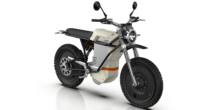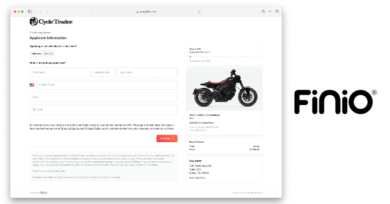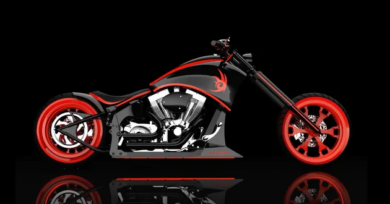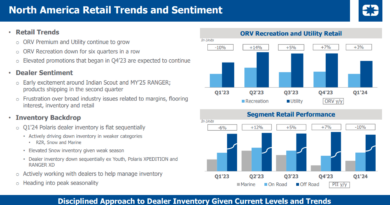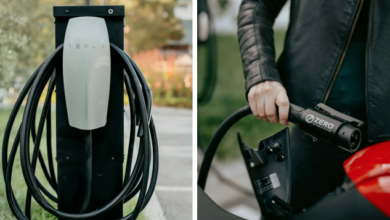Study shows how dealers react to web leads from customers
BMW motorcycle dealerships ranked highest in the 2017 Pied Piper PSI Internet Lead Effectiveness (ILE) Motorcycle Industry Study, which measured how dealerships responded to customer inquiries received through dealership websites.
Study rankings by brand were determined by the Pied Piper PSI process, which ties “mystery shopping” measurement and scoring to dealership sales success.
Pied Piper sent customer inquiries through the individual websites of 2,197 motorcycle dealerships, asking a question about a vehicle in inventory, and providing a contact name, email address and local telephone number. Pied Piper then evaluated how the dealerships responded over the next 24 hours. Nineteen different measurements generated a dealership’s PSI-ILE score.
Although the motorcycle industry average PSI-ILE scores were similar in 2016 and 2017, behind the scenes there were substantial changes in behavior.
Industry-wide, dealerships were more likely in 2017 to respond in any way, which climbed to 91% of the time on average, up from 89% in 2016. Personal responses (disregarding automated responses) on average occurred 46% of the time, up from 41% in 2016. Salespeople were also more likely to answer a customer’s question, which increased from 27% of the time in 2016 to 37% of the time in 2017, and were more likely to attempt to contact a customer by telephone, which increased from 45% of the time in 2016 to 48% of the time in 2017.
However, the motorcycle industry remains heavily reliant on “auto responder” messages sent by customer relationship management (CRM) software, and on average the quality of automated responses deteriorated from 2016 to 2017. Simple, generic automated text responses were more common in 2017, often unchanged from the CRM system’s sample template, such as, “Thank you for contacting our dealership, a salesperson will be back in touch soon.”
In 2017, 28% of these automated dealer emails failed to identify the name of the dealership (vs. 9% in 2016), and 60% failed to identify the dealership’s physical address (vs. 49% in 2016).
These “auto responder” messages are important to the motorcycle industry since 45% of the time on average, an automated response is the only reply a motorcycle shopper receives. Use of CRM software that generates automated responses has substantially improved motorcycle industry response to web inquiries compared to five or 10 years ago.
In 2008, the typical online motorcycle shopper received any kind of reply within 24 hours only 30% of the time, compared to 72% of the time in 2013, and 91% of the time in 2017.
Even sending an email message does not ensure that a customer will receive it. In 2017, more than one-third of motorcycle dealer email responses on average were flagged as “spam” by customer email providers, and placed into the customer’s junk mail folder. Pied Piper has found two solutions to avoid getting lost in junk mail: first, many dealers phone the customer as soon as they send an email, leaving a voicemail message stating that they have responded to the customer’s inquiry. Secondly, dealers who mystery shop their own web response process can report junk mail problems to their CRM provider, or take their own steps to improve email content to avoid getting categorized as junk mail.
Within the industry, the study found substantial differences in performance by brand. For example:
- Responded in any way (including automated responses) within 24 hours:
Most likely: Polaris, Harley-Davidson, Indian, Triumph, BMW (91%+ of the time)
Least likely: Moto Guzzi, KTM (<85% of the time)
- Provided a personal response within 24 hours:
Most likely: BMW (60%+)
Least likely: Suzuki, Can-Am, Polaris, Triumph (<50%)
- Provided a personal response within 30 minutes:
Most likely: Harley-Davidson, Kawasaki, Honda (15%+)
Least likely: KTM, Zero, Moto-Guzzi, Yamaha (<10%)
- Answered the customer’s specific question within 24 hours:
Most likely: BMW (50%+)
Least likely: Suzuki, Can-Am, Aprilia, Yamaha, Honda (<35%)
- Attempted to contact web customer by phone within 24 hours:
Most likely: Harley-Davidson, Indian (50%+)
Least likely: Moto-Guzzi, Ducati, Husqvarna, Can-Am (<25%)
Those involved with the motorcycle industry 20 years ago remember a time when shoppers visited four or five times before buying, and customers needed to visit a dealership if they were interested in learning about a new motorcycle. In those days, salespeople would often conclude, “He’s not ready to buy, so I’ll just let him look around since he will be back again.”
Today motorcycle shoppers can access as much product information as they wish online without ever visiting a dealership, and as a result shoppers visit only one or two dealerships before buying.
Fran O’Hagan, President and CEO of Pied Piper said, “Regardless of whether today’s customer contacts a dealership by web, by phone or in-person, a dealership today must assume that it’s their only chance to meet a shopper, encourage them to visit the dealership, and help them become an owner of a new motorcycle.”
The 2017 Pied Piper PSI-ILE Motorcycle Industry Study (U.S.A.) was conducted between August 2016 and July 2017 by submitting customer internet inquiries directly to a sample of 2,197 motorcycle dealerships nationwide representing all major brands.
Examples of other recent Pied Piper PSI studies are the 2017 Pied Piper PSI (In-Dealership) U.S. Motorcycle Industry Study, in which BMW was ranked first, the 2017 Pied Piper PSI-ILE (Internet) U.S. Auto Industry Study in which Porsche was ranked first, and the 2017 Pied Piper PSI (In-Dealership) U.S. Auto Industry Study in which Infiniti was ranked first.
Complete Pied Piper PSI industry study results are provided to vehicle manufacturers and national dealer groups. Manufacturers, national dealer groups and individual dealerships also order PSI “mystery shop” evaluations — in-person, internet or telephone — as tools to improve the sales effectiveness of their dealerships.




